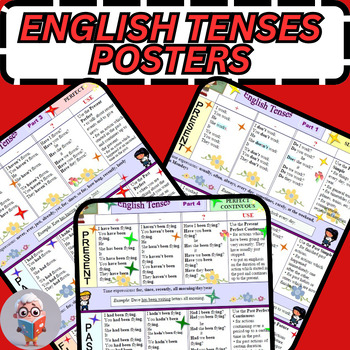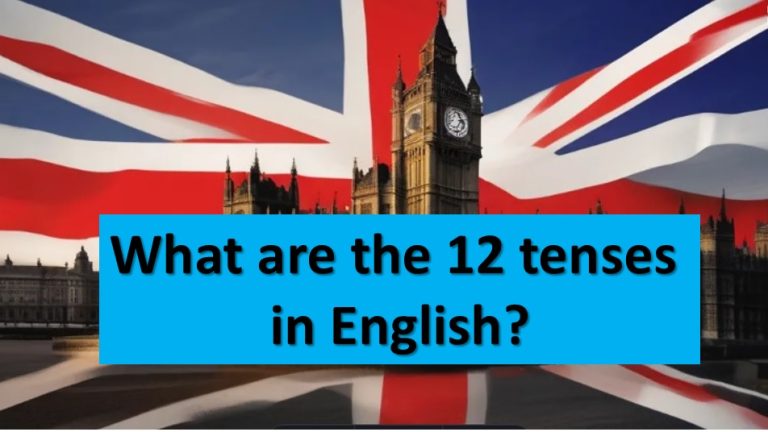Mastering Tenses: A Complete Information for Class 10 College students
Associated Articles: Mastering Tenses: A Complete Information for Class 10 College students
Introduction
With enthusiasm, let’s navigate by means of the intriguing subject associated to Mastering Tenses: A Complete Information for Class 10 College students. Let’s weave fascinating data and supply contemporary views to the readers.
Desk of Content material
Mastering Tenses: A Complete Information for Class 10 College students

Understanding tenses is prime to mastering English grammar. Tenses present the time of an motion or state of being. For Class 10 college students, a robust grasp of tenses is essential for efficient communication, each written and spoken, and for achievement in examinations. This complete information will delve into the varied tenses, offering clear explanations, examples, and useful tricks to solidify your understanding.
I. The Three Main Tenses:
English grammar primarily makes use of three main tenses: Current, Previous, and Future. Every of those tenses additional divides into easy, steady (progressive), and ideal types, making a extra nuanced illustration of time.
A. Current Tense: This tense describes actions occurring now, recurring actions, or basic truths.
-
1. Easy Current Tense: Used for recurring actions, basic truths, and everlasting states.
- Kind: Topic + Base Verb (s/es for third-person singular – he, she, it) + Object
-
Examples:
- I play cricket each Saturday. (Ordinary motion)
- The solar rises within the east. (Common fact)
- She lives in London. (Everlasting state)
- Time expressions: at all times, normally, typically, generally, not often, by no means, day by day/week/month/12 months, and so on.
-
2. Current Steady Tense (Progressive): Used for actions occurring for the time being of talking, non permanent actions, and future preparations.
- Kind: Topic + am/is/are + Verb + -ing + Object
-
Examples:
- I am studying a e book. (Motion occurring now)
- They are constructing a brand new home. (Short-term motion)
- She is leaving for Delhi tomorrow. (Future association)
- Time expressions: now, for the time being, at current, proper now, at this time, this week/month/12 months, and so on.
-
3. Current Good Tense: Used for actions accomplished at an unspecified time previously, actions that began previously and proceed to the current, and experiences.
- Kind: Topic + has/have + Previous Participle + Object
-
Examples:
- I have completed my homework. (Accomplished motion at unspecified time)
- She has lived in Mumbai for ten years. (Motion began in previous and continues to current)
- He has visited many international locations. (Expertise)
- Time expressions: since, for, already, but, simply, ever, by no means, to this point, just lately, currently, and so on.
-
4. Current Good Steady Tense: Used for actions that began previously and proceed to the current, emphasizing the period of the motion.
- Kind: Topic + has/have + been + Verb + -ing + Object
-
Examples:
- I have been learning all day. (Length emphasised)
- They have been ready for hours. (Length emphasised)
- Time expressions: since, for, all day/week/month, and so on.
B. Previous Tense: This tense describes actions accomplished previously.
-
1. Easy Previous Tense: Used for accomplished actions previously.
- Kind: Topic + Previous Easy Verb + Object (Irregular verbs have distinctive previous types)
-
Examples:
- I performed soccer yesterday.
- She went to the market.
- They ate pizza.
- Time expressions: yesterday, final night time/week/month/12 months, in the past, in 1990, and so on.
-
2. Previous Steady Tense (Progressive): Used for actions in progress at a selected time previously.
- Kind: Topic + was/have been + Verb + -ing + Object
-
Examples:
- I was watching TV at 8 pm.
- They have been taking part in cricket when it began raining.
- Time expressions: at 2 o’clock yesterday, whereas, when, and so on.
-
3. Previous Good Tense: Used for actions accomplished earlier than one other motion previously.
- Kind: Topic + had + Previous Participle + Object
-
Examples:
- I had completed my work earlier than he arrived.
- She had eaten dinner when the telephone rang.
- Time expressions: earlier than, after, by the point, already, and so on.
-
4. Previous Good Steady Tense: Used for actions that continued up to some extent previously, emphasizing period.
- Kind: Topic + had + been + Verb + -ing + Object
-
Examples:
- I had been ready for an hour when the bus lastly arrived.
- They had been working on the venture for months.
- Time expressions: for, since, till, earlier than, and so on.
C. Future Tense: This tense describes actions that may occur sooner or later.
-
1. Easy Future Tense: Used for basic predictions and plans.
- Kind: Topic + will/shall + Base Verb + Object
-
Examples:
- I will go to the social gathering.
- She will research laborious for the examination.
- Time expressions: tomorrow, subsequent week/month/12 months, sooner or later, and so on.
-
2. Future Steady Tense (Progressive): Used for actions that will probably be in progress at a selected time sooner or later.
- Kind: Topic + will/shall + be + Verb + -ing + Object
-
Examples:
- I will probably be watching TV at 8 pm tomorrow.
- They will probably be taking part in cricket tomorrow afternoon.
- Time expressions: at the moment tomorrow, subsequent week, and so on.
-
3. Future Good Tense: Used for actions that will probably be accomplished earlier than a selected time sooner or later.
- Kind: Topic + will/shall + have + Previous Participle + Object
-
Examples:
- I may have completed my work by 5 pm.
- She may have accomplished her research by subsequent 12 months.
- Time expressions: by, earlier than, by the point, and so on.
-
4. Future Good Steady Tense: Used for actions that may proceed up to some extent sooner or later, emphasizing period.
- Kind: Topic + will/shall + have + been + Verb + -ing + Object
-
Examples:
- I may have been learning for 2 years by subsequent June.
- They may have been residing in London for 5 years by then.
- Time expressions: for, since, by the point, and so on.
II. Essential Concerns:
- Irregular Verbs: Memorizing irregular verb conjugations is essential. Many previous participles and previous easy types do not observe common patterns.
- Auxiliary Verbs: Auxiliary verbs (serving to verbs like "be," "have," "do," "will," "shall") are important in forming many tenses.
- Context is Key: The precise tense used relies upon closely on the context of the sentence and the supposed that means.
- Follow Makes Good: Constant observe with numerous sentence constructions is the easiest way to grasp tenses.
III. Workouts for Follow:
To solidify your understanding, observe the next workout routines:
-
Determine the tense used within the following sentences:
- The canine barks loudly.
- She was singing a track.
- They’ve completed their venture.
- I will probably be travelling to Paris subsequent month.
- He had already left after I arrived.
-
Rewrite the next sentences within the specified tense:
- She performs the piano. (Current Steady)
- They ate dinner. (Previous Good)
- I’ll go to my grandparents. (Future Steady)
- He’s learning laborious. (Previous Good Steady)
- We’ve lived right here for 5 years. (Easy Previous)
-
Write 5 sentences utilizing every tense mentioned above.
-
Create quick tales utilizing a wide range of tenses as an example your understanding.
By diligently learning this chart, practising the workout routines, and actively utilizing tenses in your writing and talking, you will considerably enhance your English grammar abilities. Keep in mind that constant effort and centered observe are key to mastering the complexities of English tenses. Good luck!





.png)

Closure
Thus, we hope this text has supplied helpful insights into Mastering Tenses: A Complete Information for Class 10 College students. We admire your consideration to our article. See you in our subsequent article!
